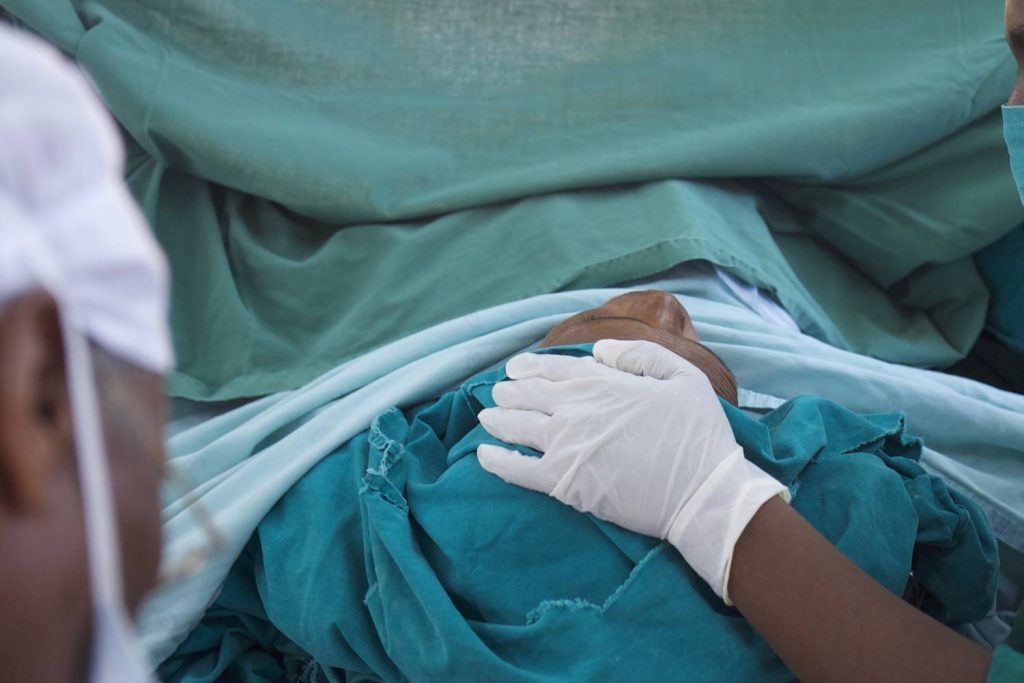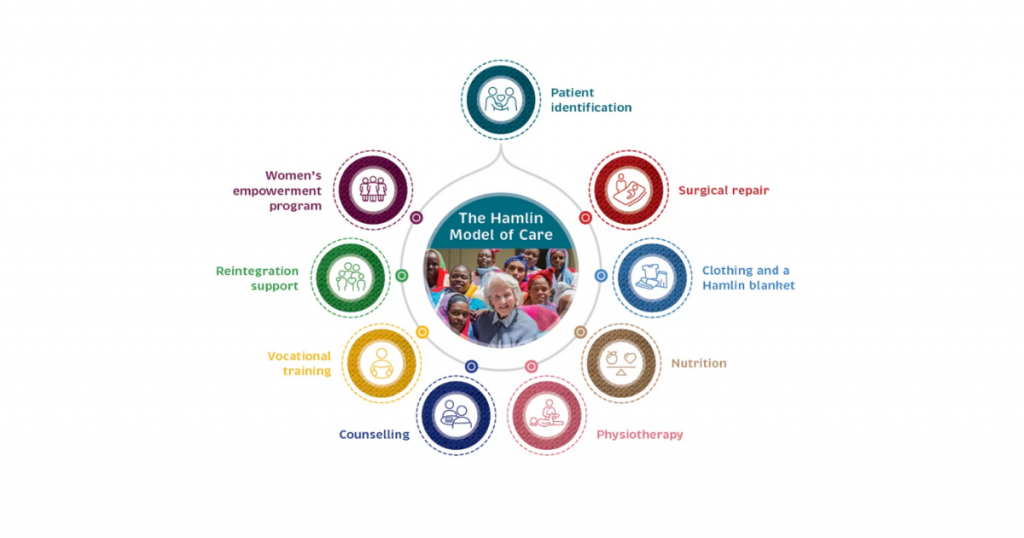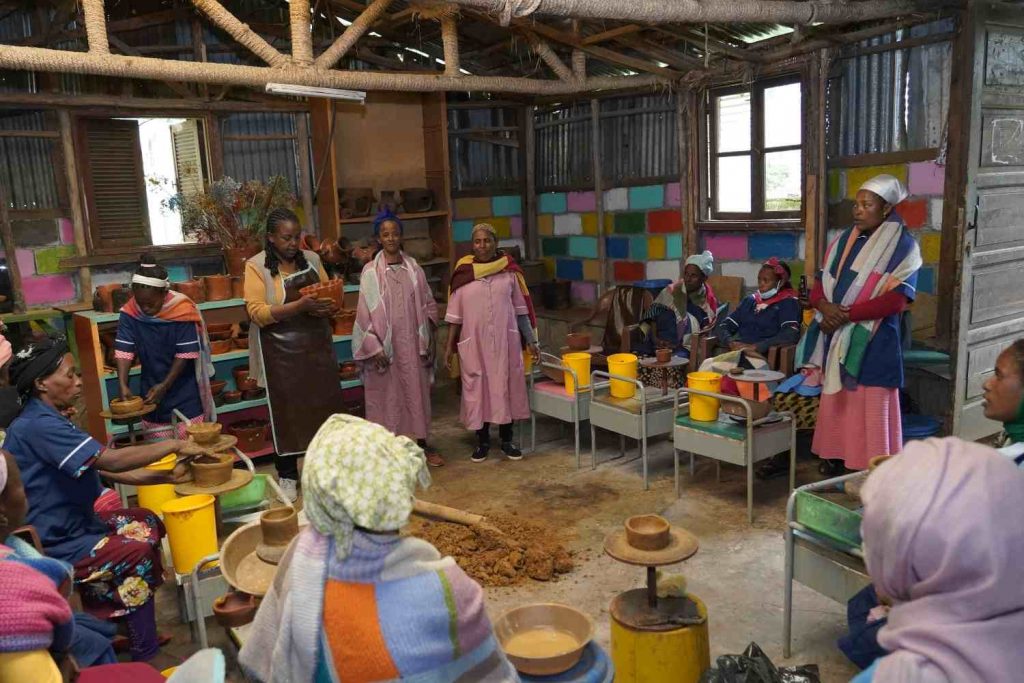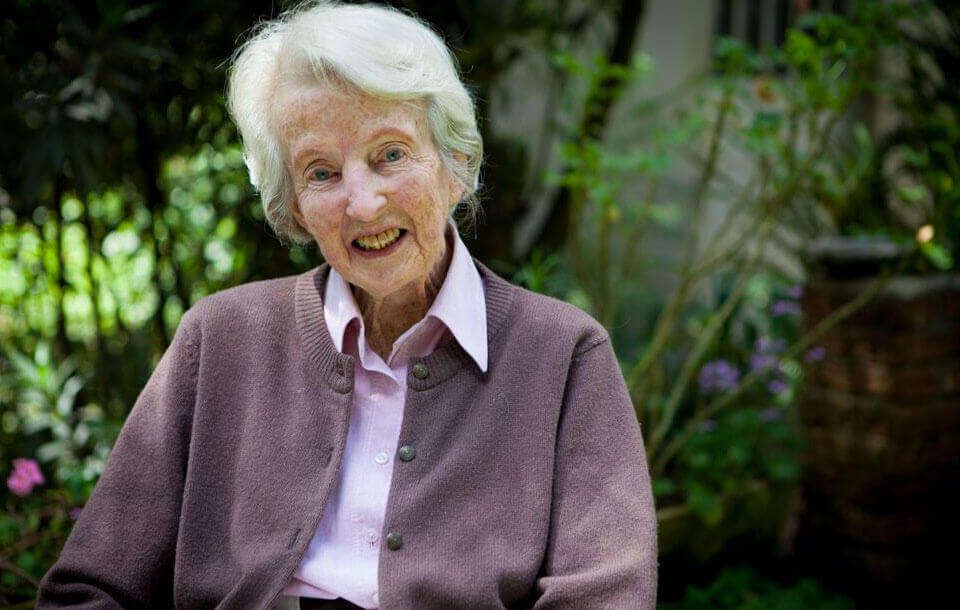Obstetric Fistula Surgery is a Life-changing Procedure
Hamlin Fistula Ethiopia is globally renowned for its obstetric fistula treatment and surgery techniques.
Developed by Drs Catherine and Reg Hamlin, this pioneering surgical technique has been recognized as a best practice in global health by leading organizations like the American College of Obstetricians and Gynecologists, the Global Health Council, the Royal College of Surgeons of Edinburgh, the Distinguished Surgeon Award from the Society of Gynecologic Surgeons and the Australian Medical Association.
Today, Hamlin Fistula Ethiopia is fully staffed by more than 550 Ethiopian medical professionals who work towards Catherine’s dream of transforming women’s healthcare throughout Ethiopia. In addition to Hamlin’s Addis Ababa Fistula Hospital, five regional hospitals have been established to respond to the significant demand for obstetric fistula repair. All six hospitals also provide a safe childbirth facility where former patients can return for a clean, safe cesarean section delivery, free of charge.
There are currently approximately 31,000 women living with fistula injuries and 1,000 women in Ethiopia suffer a new fistula injury every year. Through Project Zero, we’ve made it our mission to bring this number down to zero.
Hamlin Fistula Ethiopia is also determined to reduce the number of women suffering from preventable childbirth injuries. One of the best ways of preventing fistula is through accessible and professional maternal care. The Hamlin College of Midwives is training a new generation of women to provide care and support to Ethiopian women across the country.

The Cost of Surgical Treatment
In most cases, obstetric fistula can be repaired with a single life-changing surgery that, for some, can take no more than an hour. However, there are many women whose surgical treatment needs are more complex:
- $900 covers the cost of surgery for a woman with simple obstetric fistula
- $2,500 covers the cost of surgery for a woman with complex obstetric fistula
Your donation can help restore the dignity and health of Ethiopian women living with traumatic birth injuries.
The Hamlin Model of Care
The Hamlin Model of Care is a treatment model for fistula that has been recognized as world best practice in preoperative and postoperative fistula care.
Dr Catherine Hamlin developed it over 65 years ago and it is grounded in a fundamental respect for women who suffer this condition and a commitment to provide complete and compassionate care.
Upon arrival at a Hamlin hospital, patients are embraced with tender and loving care. They are given nutritious food, a handmade woven blanket, and clean clothing. A customized program is made for each woman that includes nutrition, physical therapy, counseling and rehabilitation.

What makes up the Hamlin Model of Care?
Patient Identification
Many women living with fistula in Ethiopia don’t know help is available. Hamlin’s ambitious Patient Identification Outreach Program is focused on finding these women through media campaigns and going door-to-door, educating the community and linking them to life-changing treatment at one of six Hamlin hospitals.
Surgical Repair
A single, two-hour operation can often repair an obstetric fistula injury and change a woman’s life. But many women who have suffered for years require more complex surgery and rehabilitation due to complications like scar tissue, long-term infection and renal damage. The Hamlin surgical technique and the Clinical Team’s approach is considered best-practice fistula treatment globally.
Clothing and a Hamlin blanket
A woman’s healing starts as soon as she arrives at a Hamlin hospital. She receives a colorful hand- knitted blanket, symbolizing her life being woven back together. She is also given a nightgown and slippers to wear during her stay. On the day she leaves, she is presented with a new dress to celebrate her return home.
Nutrition
Good nutrition is an essential part of healing. Many women with fistula are malnourished as they spend their lives hidden and in isolation. Patients at Hamlin hospitals receive healthy, nutritious meals during their stay to build up their strength and encourage faster recovery.
Physiotherapy
An arduous labor can cause nerve damage, while long periods of immobility can result in muscle contractures – conditions most women with fistula injuries experience. All Hamlin patients receive a tailored physiotherapy program before and after fistula repair surgery to make sure they regain full function in their muscles.
Women’s Empowerment Program
Hamlin’s Women’s Empowerment Program gives fistula patients in need of income support vital vocational skills at Desta Mender. This groundbreaking initiative trains 245 women every year, offering a range of vocational training opportunities, including small-business guidance. These life-changing skills give women choices and independence – empowering their communities and those around them.
Reintegration support
Many women lose everything due to the devastating impact of their fistula injuries. They’re also often ostracised from their communities. Hamlin supports women with reintegration into their communities and independent living by helping them find sustainable employment or start their own businesses. This support is critical to equipping women to live with dignity.
Vocational training
The Hamlin Model of Care places great emphasis on empowering women to take control of their lives. During their stay at a Hamlin hospital, women can develop their numeracy and literacy skills and receive vocational and life skills training, empowering them to return to their community with confidence and the ability to earn an income.
Counseling
The emotional trauma of fistula can often be more scarring than the physical injury. Healing the psychological scars and building confidence is a key part of rehabilitation. Women receive compassionate support to help them regain their sense of self, often after living in shame and isolation for years.
Hamlin’s Rehabilitation and Reintegration Program
Hamlin’s Rehabilitation and Reintegration Program at Desta Mender provides a safe place for women who have been shunned by their communities due to fistula. The program offers counseling, literacy, and numeracy classes.
Vocational and life skills training is also available, and the Hamlin team supports women in finding sustainable employment upon reintegration back into their communities. In some cases, this also includes the facilitation of start-up grants to establish their own business, enabling these women to generate an income.

Hamlin College of Midwives
To eradicate obstetric fistula forever, we need more midwives in rural areas of Ethiopia to identify pregnancy complications and prevent obstetric fistula in the first place. That’s why in 2007 Catherine established the Hamlin College of Midwives to increase access to quality healthcare across Ethiopia.
The Hamlin College of Midwives in Ethiopia recruits women from rural communities in Ethiopia to learn the Hamlin Model of Care during a four-year Bachelor of Science in Midwifery program. The full curriculum is certified under the International Confederation of Midwives, and it includes the precondition that students conduct at least 40 deliveries before they graduate.
Since opening, over 230 Hamlin Midwives have graduated from the College. After she has graduated, a Hamlin Midwife returns to her village as a health leader in her community. Today Hamlin Midwives are based in over 90 rural midwifery clinics in remote areas where their skills are desperately needed.
The Hamlin College of Midwives in Ethiopia is building the local midwifery workforce year by year, working towards the goal of providing a midwife for every pregnant woman in Ethiopia.
Help finish what Catherine started
